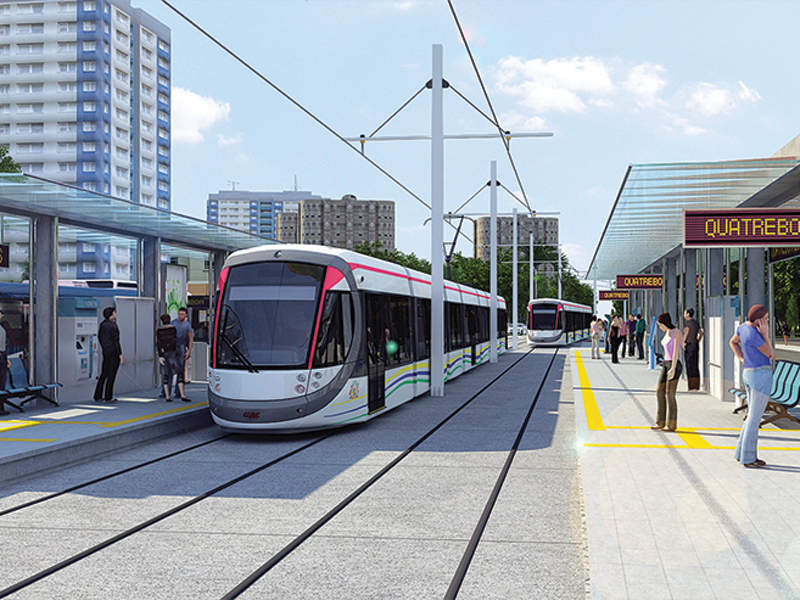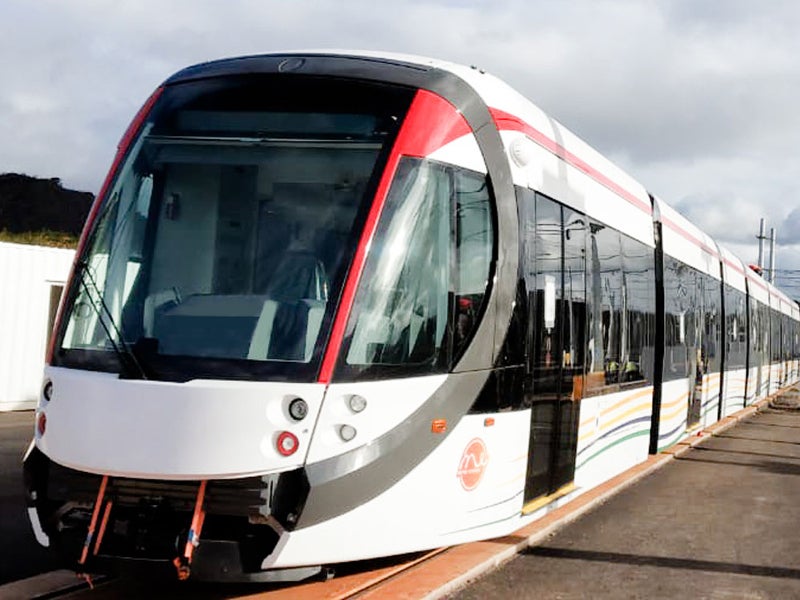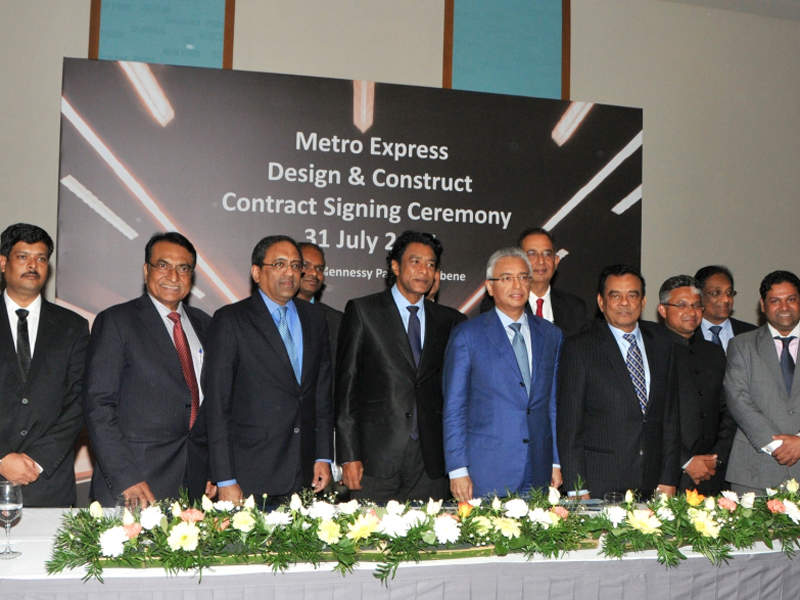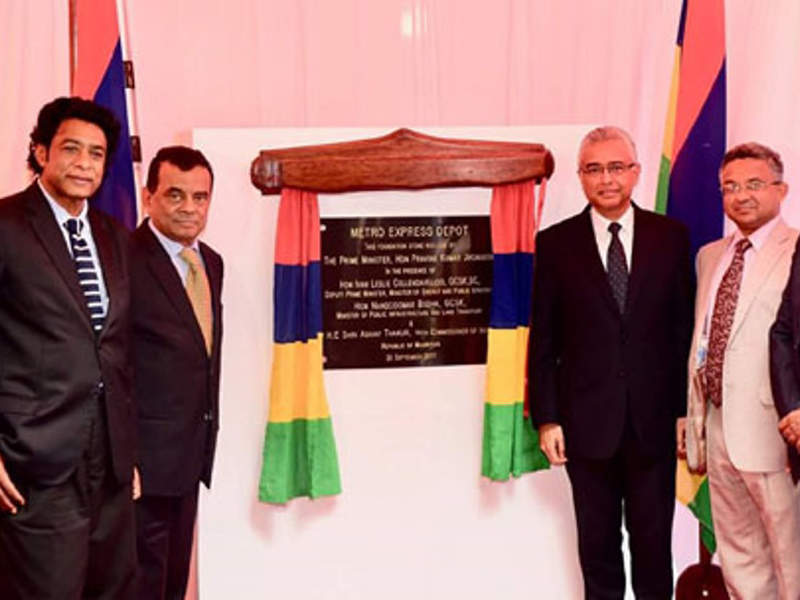Mauritius Metro Express is a partially operational light rail transit system being in the island nation. It will pass through five major cities, including Curepipe, Vacoas, Rose Hill, Quatre Bornes, and the capital Port Louis.
Estimated to cost MUR18.8bn ($565m), the project was officially launched in March 2017 and is being undertaken by Metro Express Limited, a wholly-owned company of the Government of Mauritius.
The first phase of the Mauritius Metro Express on a 13km section between Rose Hill and the capital Port Louis was inaugurated in October 2019. The light rail project is expected to become completely operational by early-2021.
Once completely operational, the 26km line will extend from Curepipe to Immigration Square in Port Louis and will include 19 stations.
The metro project will cut the journey time from Curepipe to Port Louis to 41 minutes. It is expected to create approximately 7,000 full-time jobs during the construction phase.
Metro Express Mauritius project background
The light rail project is being undertaken to decrease traffic congestion in Mauritius, which is costing the nation MUR4bn ($119.6m) a year. The project design includes the creation of a multimodal urban transit solution, connecting three major bus interchanges to give commuters to access bus services.
A future north-south expansion of the metro express is in plan, which will create a direct connection to the airport.
A Joint Project Monitoring Committee, under the chairmanship of the Minister of Public Infrastructure and Land Transport and the High Commissioner of India to Mauritius, was created to oversee the light rail project.
Mauritius Metro Express stations and construction
The Metro Express Mauritius project includes track works and construction of stations, viaducts and bridges in addition to the installation of electric traction systems, ticketing and passenger information systems, and other maintenance equipment.
It also includes installation of advanced signalling systems across the network to ensure integration with road traffic.
The metro line will have 19 stations, two of which will be elevated. A dedicated train depot is located at Richelieu.
The stations will feature user-friendly ticket machines, and the tracks will be ballast-less.
Rolling stock for the light rail project in Mauritius
The Metro Express Mauritius project will be powered by 18 bi-directional, low-floor, air-conditioned trams with seven modules each. The Urbos Trams will be delivered by Spanish firm CAF and will run at 35-80km/hr across the network.
All the trams will be equipped with an advanced signalling system, automatic vehicle location system (AVLS), transit signal priority system (TSPS), and a driving simulator.
The trams will be capable of accommodating between 300 and 400 passengers and will have a Wi-Fi facility.
Metro Express Mauritius financing
The Mauritius Metro project is being developed with the support of a $353m grant awarded by the Government of India to Mauritius in March 2017.
“The light rail project is being undertaken to decrease traffic congestion in Mauritius, which is costing the nation MUR4bn ($119.6m) a year.”
The grant was awarded as a special economic package for assisting five high-priority projects, which include the Metro Express project, new Supreme Court building, e-tablets for primary school children, social housing units and a new ENT hospital.
The Indian Government has granted MUR9.9bn ($275m) for the Metro Express project as part of the grant, while the remaining is being financed by the State Bank of Mauritius Infrastructure Development through a line of credit.
An advance of MUR1.8bn ($52.95m) was transferred to the Government of Mauritius in November 2016, followed by an Rs900m ($27.5m) cheque issued in September 2017.
Contractors involved
Larsen & Toubro (L&T) was awarded the MUR18.80bn ($565m) design and construction contract for the Metro Express Mauritius project in July 2017. Subsequently, in December of the same year, the company awarded a €100m ($119m) contract to CAF for supplying 18 Urbos trams for the light rail system.
Singapore Cooperation Enterprise (SCE) prepared the feasibility study report and the preliminary design and alignment of the Mauritius Metro project.
The Government of Mauritius appointed RITES as the consultant and project implementation supervisor in March 2017.
Aurecon was engaged as the technical advisory services consultant for the light rail system to work in collaboration with SCE and the Singapore Mass Transit Corporation (SMRT) on the project.
SMRT will provide technical inputs for public transport integration, operation and maintenance planning, and operational safety of the project.
Orfisa was contracted for documentation services in addition to engineering and architectural services.
The government of Mauritius has created a traffic engineering unit comprising the Korea Expressway Corporation, the Mauritius Research Council, and the Ministry of Public Infrastructure and Land Transport to address the traffic issues from the Mauritius Metro project.
Systra Group in India was appointed as the detail design consultant for the light rail project. The scope of work included preparation of preliminary design, detail design, and as-built drawings for the complete Mauritius LRT Project.
DAMM provided its DAMM TetraFlex® solution for operations control of the project.






